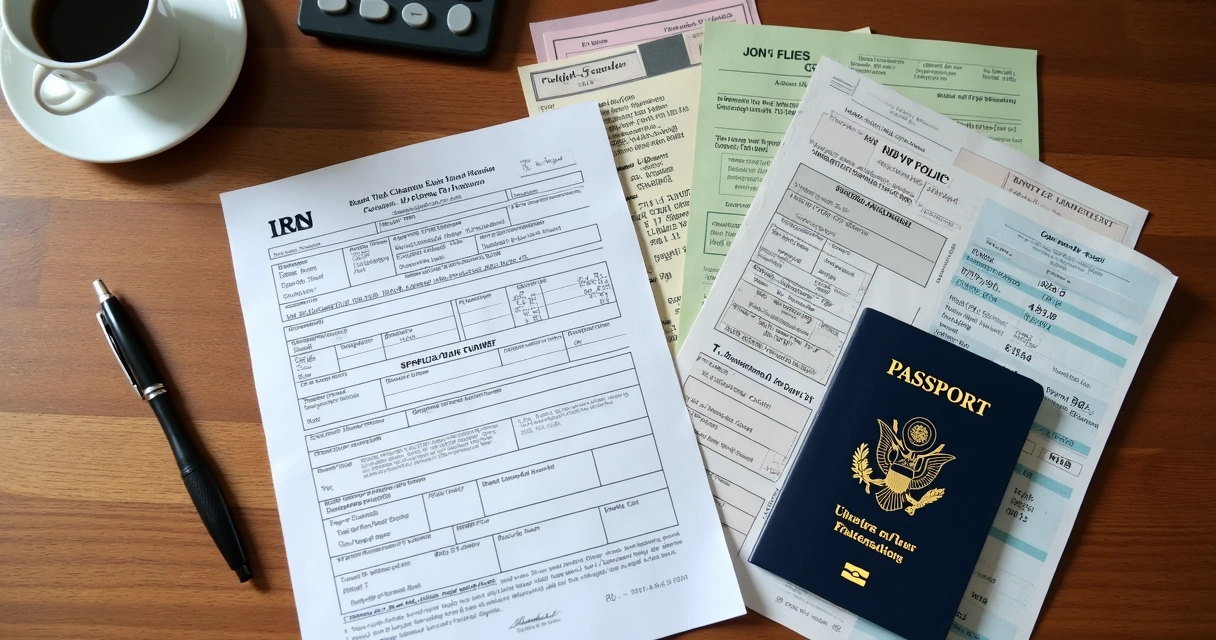In my career, I’ve met countless people who dreamed of owning a home in the U.S., but felt lost just because they didn’t have a Social Security Number (SSN). When I first learned about mortgages for ITIN holders, I realized how many doors could open for families, investors, and individuals who thought buying a house was simply out of their reach. In this article, I want to clarify, as simply as possible, this alternative path with its steps, nuances, and some real opportunities.
Why ITIN home loans matter
Let me start with the basics. ITIN stands for Individual Taxpayer Identification Number. It's a tax processing number provided by the IRS to people who are not eligible for a Social Security number, including non-residents, certain visa holders, and others without legal status. While the path to the traditional mortgage market can be tough for these borrowers, it’s far from impossible.
Homeownership can be possible without an SSN.
ITIN-based mortgages, like those preferred at Heart Mortgage, are designed to provide financing options where others shut the door. According to Federal Reserve HMDA data, lending access for low- and moderate-income borrowers has fallen in recent years, showing just how necessary tailored solutions have become.
Who might seek a home loan with ITIN?
In my experience, these loans make the most difference for:
- People without SSN but with steady U.S. income
- Non-permanent residents or immigrants
- Foreign investors aiming for rental properties in the U.S.
- First-time homebuyers without legal residency
Many people feel the system isn’t made for them and that their dream will have to wait, maybe forever. But programs like those from Heart Mortgage offer a chance, even when mainstream banks say no.
Discovering the possibilities even without a Green Card is more common than many realize.The steps: Getting your ITIN and preparing documentation
I’ve noticed confusion about getting started. So here’s my take, step by step:
- Apply for your ITIN. This is done through the IRS (Form W-7). Supplying tax returns, a passport copy, or alternative ID is required.
- Gather documents. Lenders typically ask for:
- Valid ITIN letter from the IRS
- Government-issued photo ID (passport, consular card, etc.)
- Proof of income, such as tax returns or pay stubs
- Proof of employment or self-employment
- Bank statements (often 12–24 months)
- Documentation of residence/address history
- Demonstrate stability. Showing consistent income and responsible financial habits is key for approval.
Sometimes, the pile of paperwork can feel overwhelming. But experienced teams simplify each step, making the process less intimidating. I always encourage careful organization so nothing gets missed.

Types of loans available for non-SSN borrowers
Here’s where details really matter. The two most-searched types are:
- Non-QM (Non-Qualified Mortgage):
- More flexible qualification
- Designed for ITIN holders, foreign nationals, and self-employed borrowers
- Can be used for investment or primary residences
- No government insurance (so higher rates and bigger down payments)
- FHA Loans:
- Very popular in the mainstream market
- Usually require SSN and legal residency – most FHA programs don’t accept ITIN
- Some confusion exists here, but current federal guidelines are clear: ITIN-only borrowers can’t use FHA loans.
Some programs, like the HOPP/ITIN, bring a set of unique advantages that I find very compelling for many borrowers.
Special program benefits: HOPP/ITIN and more
Let me point out why these “niche” programs are gaining attention:
- Financing up to 90% of the property’s value
- No Private Mortgage Insurance (PMI) needed
- Low minimum loan amounts (sometimes near $75,000)
- Property use flexibility: primary residence, investment, second home
- National acceptance
- Quick processing – usually 30-45 days
No SSN? Still, you can qualify for up to 90% financing.
But remember, these benefits come with trade-offs, such as higher rates or stricter verification of income. It’s about balancing what matters most: access to ownership versus monthly cost.
What shapes approval: Credit, down payment, rates, and processing
I’m often asked, “Is my credit score even relevant without SSN?” The answer is: it helps, but isn’t the only factor. Lenders may request credit from international credit bureaus, alternative trade lines, or review payment histories (things like rent, utilities, or insurance).
Higher down payments are usually required, typically 15% to 25%. Sometimes even more. This shows your commitment and reduces the lender’s risk, which means a better shot at approval.Interest rates are another consideration. According to Federal Reserve bulletins, rates for non-traditional borrowers tend to come in a little higher compared to prime candidates. This reflects the risk calculations but is sometimes outweighed by the ability to access financing when other doors are closed.
Processing times usually fall within 4-6 weeks, depending on how fast required documentation is delivered and reviewed.

Who really benefits from ITIN number home loans?
The groups that benefit most from these loans are not just recent arrivals. Many have built a life and income in the U.S. but lacked a traditional way into property ownership. Whether it’s for their own homes, family members, or even investment properties, ITIN mortgage programs support stability and growth.
There are even special paths for foreign nationals who invest in U.S. real estate. Programs like those at Heart Mortgage are made to fit specific realities, backing up the dream of homeownership with real support and clarity. As detailed guides show, the process, while different, is ultimately straightforward for those prepared and supported.
Wrap-up: Making home ownership accessible, step by step
To sum up, if you’re living or earning in the U.S. and believe that property is out of reach without an SSN, learning about the ITIN number home loan should encourage you. This isn’t a shortcut, and you’ll need solid documentation, a good down payment, and honest financial habits. But as I’ve seen firsthand, these programs make homeownership possible for thousands who would otherwise be left behind by the rules of conventional banking.
If you’re ready to start your journey or want to understand more about your chances as a first-time homebuyer, the right information can make things far simpler. For anyone who wants to see if a conventional loan still fits better, that route is open as well.
Heart Mortgage has been supporting people from all backgrounds to access fair and clear mortgage solutions. If you want personalized help, accurate advice, or just need a straight answer, reach out to discover how our team can bring you closer to your dream home—even without an SSN.
Frequently asked questions about ITIN home loans
What is an ITIN number home loan?
An ITIN number home loan is a mortgage designed for people who do not have a Social Security Number but have an Individual Taxpayer Identification Number. It allows foreign nationals, immigrants, or anyone without an SSN to apply for and potentially receive home financing in the U.S. These loans often require more documentation but open doors that would otherwise remain closed.
How can I get a home loan with ITIN?
Start by obtaining your ITIN from the IRS, then gather all needed documents like your tax returns, a valid ID, income proof, and bank statements. Once you have those, approach a lender with ITIN-focused mortgage programs, such as Heart Mortgage. It’s important to be upfront, organized, and ready for a deeper review of your financial habits.
Is it worth getting a mortgage with ITIN?
For many, getting a mortgage through ITIN is the only way to own property in the States. While interest rates may be higher and down payments larger, for those unable to qualify through other means, the opportunity for homeownership is well worth it. It helps establish credit and investment in your new community.
What are the requirements for ITIN home loans?
Generally, you’ll need:
- A valid ITIN
- Government-issued ID
- Stable proof of income (tax returns, pay stubs)
- Bank statements
- Higher down payment (often 15-25%)
- Minimum credit history or alternative credit sources
Where can I find ITIN home loan lenders?
I suggest searching for lenders with institutional experience working with ITIN borrowers. Heart Mortgage, in particular, can guide you through step-by-step. Look for in-depth guides on qualifying and applying for ITIN mortgages for more information.





